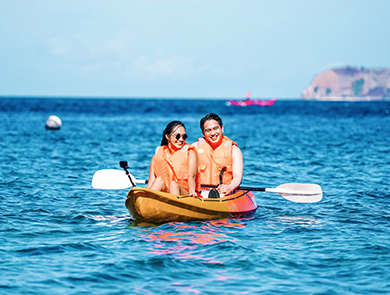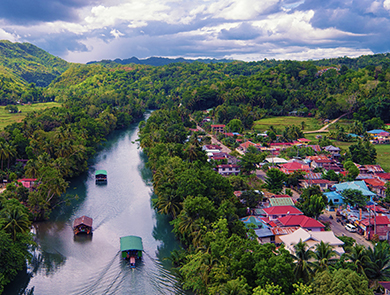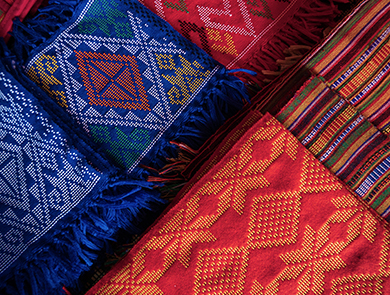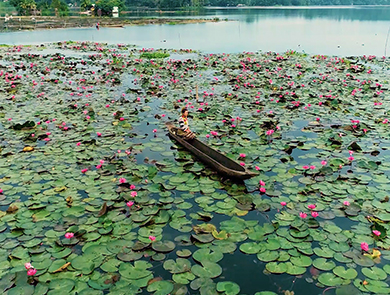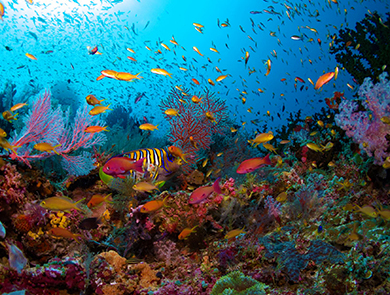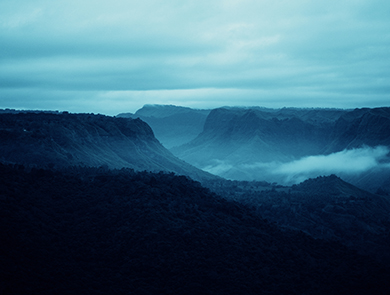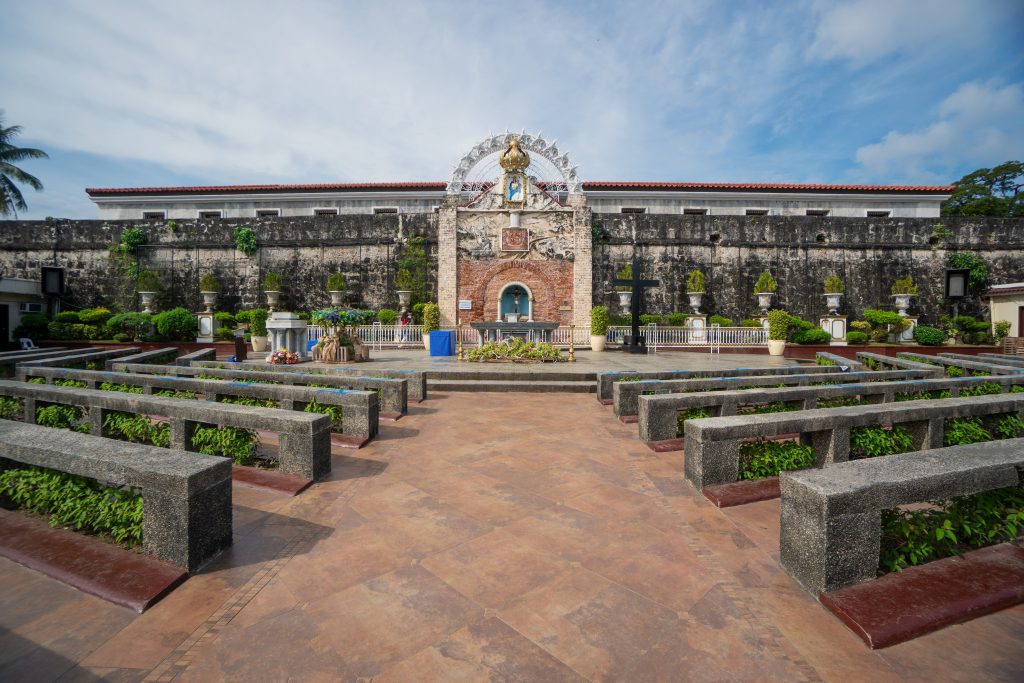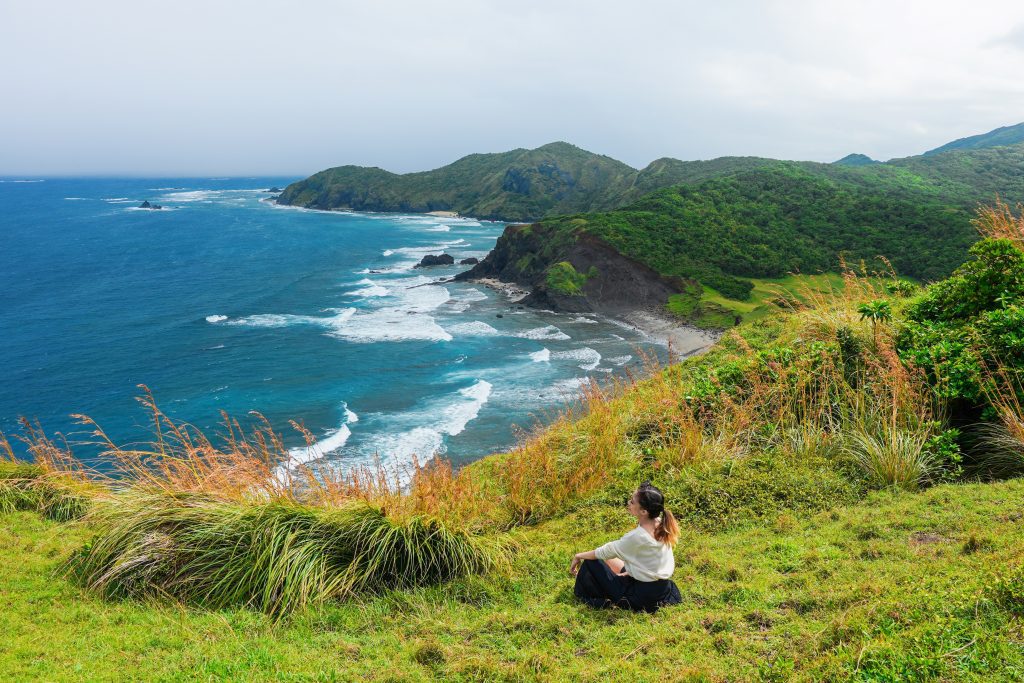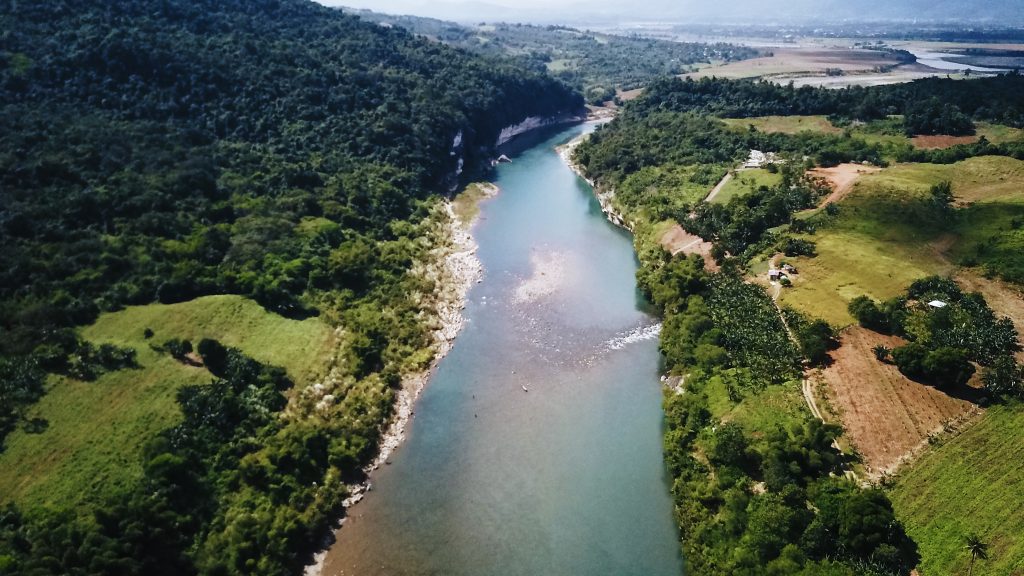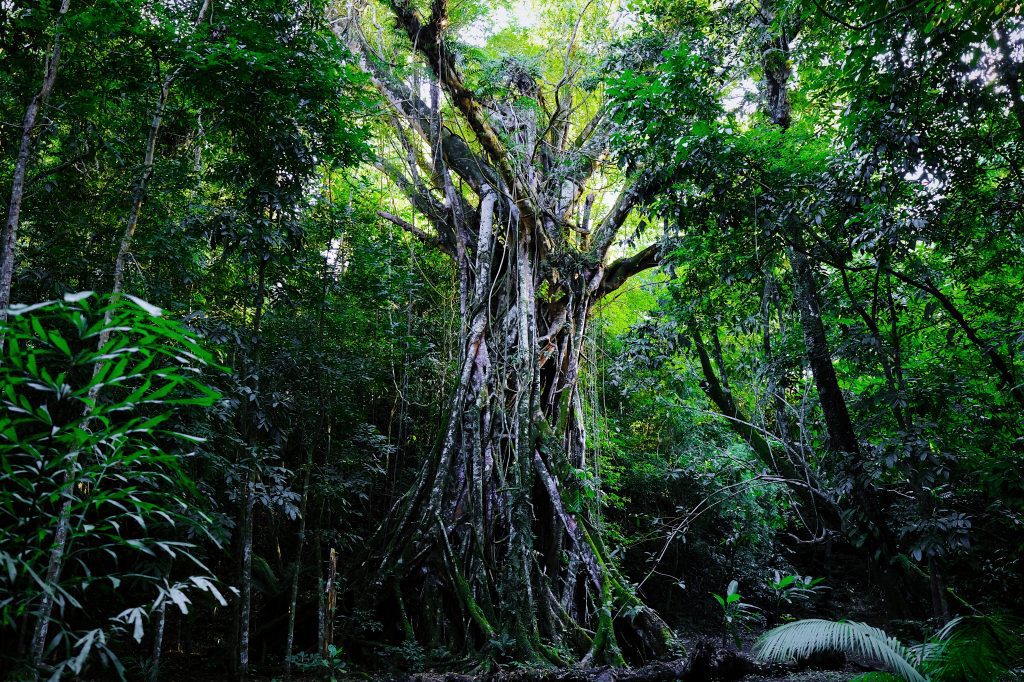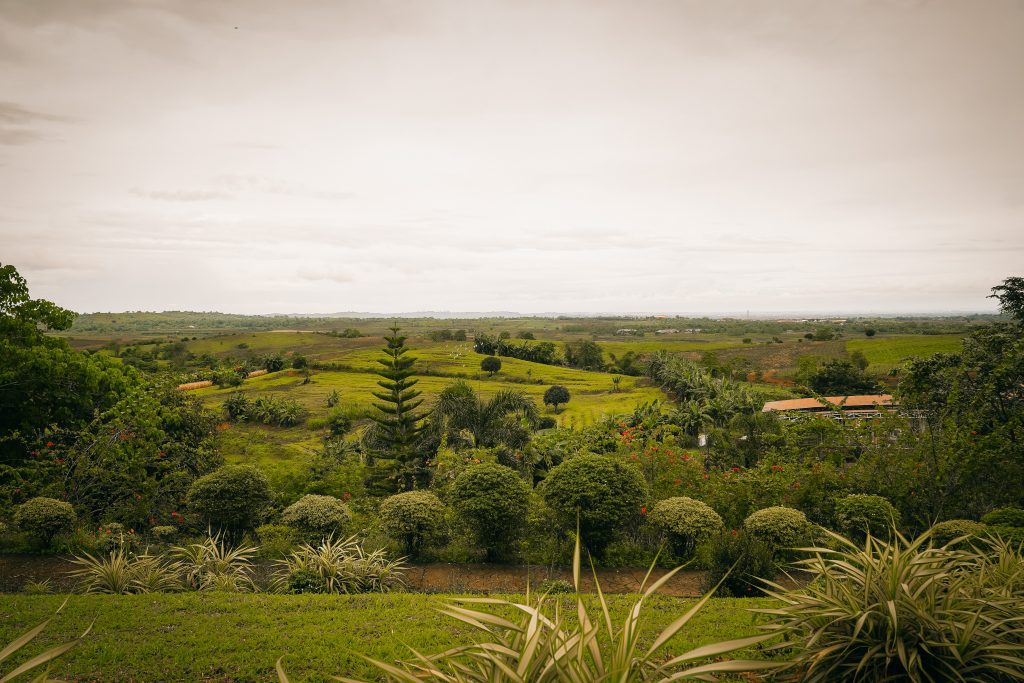
People travel for different reasons—for work or leisure, family bonding or self discovery, professional growth or academic pursuits. Most of the time, the traveler is an itinerant, flitting from one place to another, but always going back home after each trip. A few, however, fall so deeply in love with a place that they choose to stay and call it their home.
After graduating with a degree in Architecture in 2015, Jovanne Faraon considered relocating to the US, preferably somewhere near the coast, for further studies. Before moving, she thought of spending at least a year in Bali for an internship, traveling every now and then from one coastal city to another to indulge her love for surfing. That was the plan.
But fate had something different in store for her.
Baler calling
Faraon’s love for the ocean can be traced all the way back to her childhood when her family used to take short trips to the beach.
“I remember always playing pretend that I was a mermaid that got lost on the shore!” she shares, adding that this affection intensified when she got into surfing. “The first time I tried it, I didn’t stop anymore. I felt like it was the missing piece in my life that turned my whole world around—in a good way.”
It was the 30-year-old architect’s affinity for the sea and surf that brought her to Baler. “I was so hooked on surfing during college that I would book almost all my free days weekly to go here just to surf,” she says.

Faraon felt an instant connection to the province. “I fell in love with what the city didn’t have,” she says. “Fresh breeze, clean waters, fresh food, different scenery.”
Frequenting the town eventually made her long to be in the water every time she was back in the city, “I didn’t feel like I belonged to the city anymore. I wanted to leave. While exposing myself to nature more, I slowly drifted away to what the city offered me: late night outs, ‘important’ gatherings, traffic, social status, and a fast-paced living.”
In 2015, a few months after graduation, she decided to call Baler her home.
Beyond the sea, sand, and surfing
What surprised Faraon during her early trips to Baler was that there was more to the province than surfing. She found herself falling in love with its culture and the locals.

“I felt like everyone was family even though you just met them,” she shares. “Also, I didn’t feel out of place, or lonely despite traveling solo on some trips because the locals would always be there to welcome me back.”
Faraon could survive an entire day without bringing her wallet. “My usual go-to places to eat would let me pay them back some other time,” she says. “I didn’t need an ultimate bonding moment to gain their trust, they just naturally built their relationship with me over small talks and frequent visits.”
Despite being an architect, Faraon does not miss the urban landscape with its skyscrapers and shiny malls. “Seeing the horizon through the sea is more than enough for me to end a stressful day,” she says.
Architect by the beach
With a BS in Architecture in her arsenal, Faraon initially engaged in small local projects. She did this together with her husband Wilson who is a surfer and native of Baler
She took on the planning and designing aspects while her other half was in charge of construction. “Our dynamic worked and we were referred after every completion of a project by word of mouth, so it was fulfilling to know that we were on the right track,” Faraon shares.
Two years from the time she moved to Baler, she passed the board exams and got her license. This gave her the opportunity to expand her design projects beyond the shores of Baler. She now has clients in Manila, La Union, even down south in Siargao.
Despite the steady stream of projects, Faraon prefers to keep her name in the industry small. “I’m only a one-woman team and my family is still my priority over career,” she explains.
Challenges of island living
It’s not all surf, sand, and good times, though, as beach living also has its downsides. The UP Diliman alumna learned how to set expectations economically.
“Provincial living means provincial rates. I wouldn’t be able to start my career in Baler if I stuck to the rates in the city. I had to adjust to the economy.”
As in many provinces in the country, one should also expect the occasional power outages especially during the rainy season. “It’s best to equip your house with a hybrid solar system if you are working from home or if you just can’t afford to lose power 24/7,” she advises.
A mother of two adorable little girls, Faraon admits that another challenge is the lack of choices when it comes to education.
“I’m not after the best school in the country or the world, but I simply wanted to choose what’s best for my family,” she says. “Since we have limited options of putting them to a school that fits our needs, I’ve chosen homeschooling as an option instead.”
She adds that employment can also prove to be difficult, “There are not many full-time job offers open either, especially if you are an expat. Your work option can be WFH or you may also try to bring in something that the community can relate to.”
To these challenges, Faraon reiterates the value of expectation setting. “Embrace (the downsides) instead of hating on them!” she advises. “Once you get used to them, you will be able to accept your surroundings.”
Giving back to the community
Faraon’s love for and deep connection with Baler compelled her to spearhead the Ocean Care Movement about three years ago.

“I wanted to make a difference,” she shares. “I wanted to somehow awaken the community that there is an underlying issue as to why our waters and streets are dirty.” The environment advocate explains that the locals were, for the longest time, not aware of proper waste disposal.
“We led the first ever beach clean up in Sabang beach with about 200 volunteers holding empty sacks, walking from the end of the coast as far as they can go. It was an eye-opener for the community and especially the government,” she continues. Through their efforts, waste management concerns in Baler were addressed one step at a time.
The COVID-19 pandemic and the restrictions that came with it, sadly, put the movement to a temporary halt. They have no plans to resume their activities yet as Baler only recently opened its borders to visitors again.
Baler recommendations
Baler has long been a surfing mecca, but the surfer-mom recommends visitors try other activities, too.

“It would be nice to go island hopping to the other coves of the province, pa-luto some fresh sea bass or shellfish, picnic by the river, go hydrofoiling or windsurfing, and chill with locals by the beach,” she says.

She recommends Diguisit Beach for white sand leisure and Cemento Beach for surf and hydrofoiling.
Among her recommended restaurants are Baler Ortus for Japanese food, Happy Huts for pizza, and Madison’s Café for comfort food.
Faraon assures visitors that the locals are among the friendliest people she has ever met and that they will be more than happy to entertain visitors, especially the surfers.
She emphasizes that Baler is ideal for family getaways. “Please don’t expect Baler to be the next ‘party island’. The community will not adapt to that kind of scene,” she pleads. “They are geared to be family-oriented and will welcome you with open arms if you show respect to their place in return.”
Life lessons in Baler
Living in Baler has taught Faraon to live life to the fullest. “As clichéd as it is, money can’t buy you happiness,” she says. “There is nothing greater than being content with your own self and that is where you find true happiness—within yourself. I can’t stress that any further.”
How the surf gets her grounded and reminds her to be always present. “I take that value with me throughout the day, which I find really important,” she says.
Her move from the city led her to move away from what she considers “unnecessary things,” hence, a pivot to more spiritual activities.
On top of being a yoga facilitator, she is also a professional tarot reader and a reiki master. “I felt that there was something greater than everything I had … and I found it. I found myself to be in the right place,” she says. “I am able to become my true self here, and that is something that I haven’t found while living in the city that’s full of conditions and judgements—so this is really important to me—to be my authentic self serving its purpose in life meaningfully.”
For Faraon, this is a lesson she continues to learn to this day as her life in Baler goes on.
Faraon doesn’t see herself traveling back to Manila anytime soon nor living there again. “I’ve grounded myself in this place and I’ve built my home for my family already,” she admits. “I’m slowly learning to get to know my children as they grow older and I’ve also noticed how much we all yearn to be close to the sea. We’re a family of fish, we just can’t be away from our sacred space!”
Life may have taken Faraon on a detour. She may not have ended up in a coastal town in the US, she may not have gone on that internship in Bali. But she was still able to find and build herself a home by the sea with her little family who is just as head over heels for Baler and its sea and surf as she is.
Travel safely!
All tourist destinations in Baler, Aurora have health and safety protocols in place to protect locals and visitors alike. Everyone is expected to comply by wearing face masks, regularly washing their hands, and practicing physical distancing.
To check out up-to-date information regarding local destinations that are open and the safety protocols and requirements needed for each location, you may visit www.philippines.travel/safetrip or download the Travel Philippines app at app.philippines.travel or the Google Playstore.



